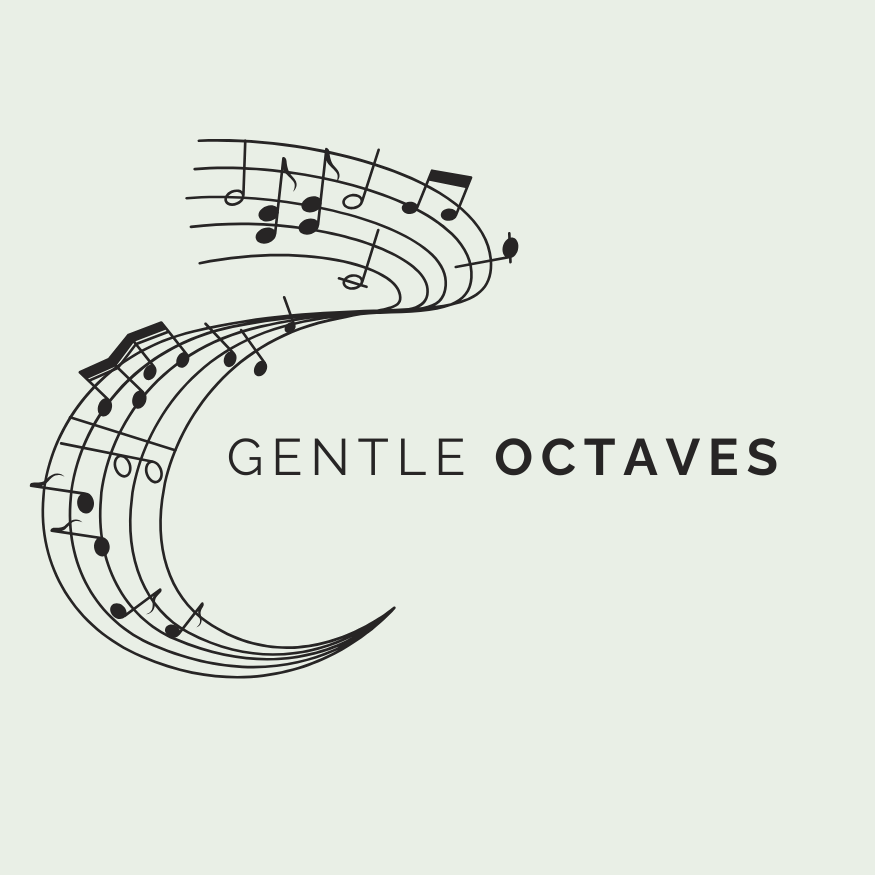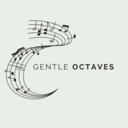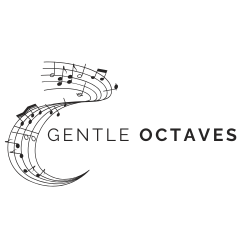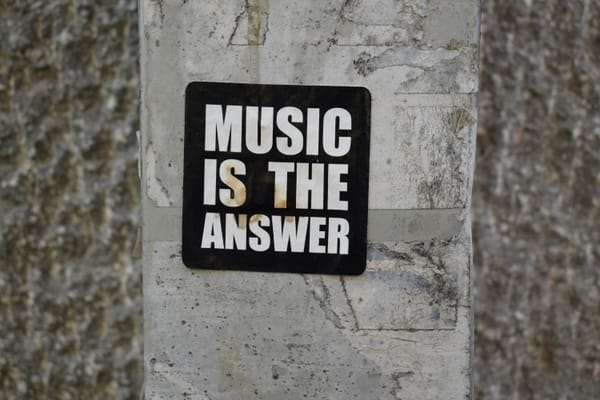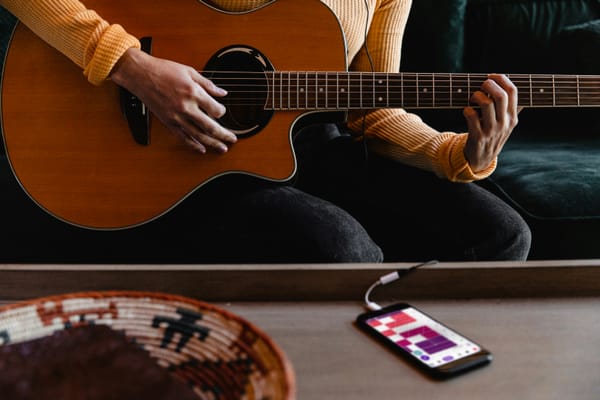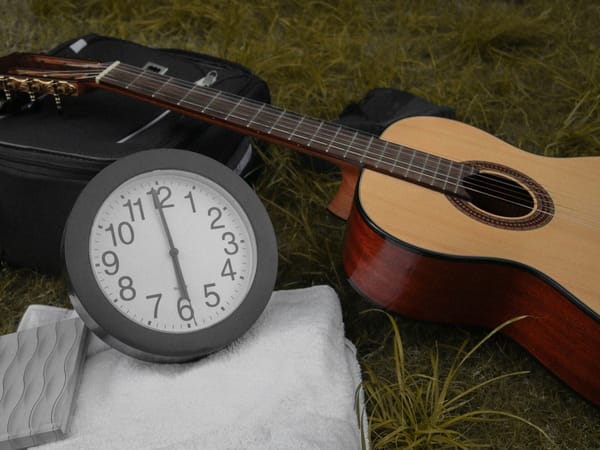From Stage Fright to Spotlight: Your 5-Day Guide to Confident Performance
Overcome performance anxiety in just 5 days with proven tools for singers, guitarists, and speakers. Build confidence and enjoy the stage again.

Practical, psychology-backed tools to calm your nerves and perform with confidence: whether you sing, play, or speak.
That moment before you perform — your stomach flips, your hands sweat, and your mind races.
It’s not a sign you’re weak. It’s your body doing exactly what it was built to do under pressure. The trick is learning how to work with it, not against it (Steptoe, 2001).
Why Performance Anxiety Happens (and Why It’s Not Your Fault)
Your brain sees a crowd the same way it sees a charging bear — as a threat. Heart rate spikes. Breath shortens. Muscles tense. This fight-or-flight response evolved to protect you, not to help you nail that guitar solo or vocal run (Steptoe, 2001).
Past criticism, burnout, or perfectionism can train your body to expect danger every time you step up to perform. You’re not broken — you’ve just been practicing fear without realising it.
The 5-Day Perform Without Fear Plan
- Day 1 – Calm the Body First
- Diaphragmatic breathing reduces cortisol and heart rate (Ma et al., 2017).
- Ground yourself by pressing your feet firmly into the floor, feeling your weight evenly spread.
- Day 2 – Mental Rehearsal for Safety
- Visualization activates the same neural pathways as actual performance (Guillot & Collet, 2008).
- See the stage, hear the sound, feel the space — rehearse calmness.
- Day 3 – Small Wins, Big Confidence
- Gradual exposure retrains the nervous system (Craske et al., 2014).
- Start with your “safe edge” — maybe playing for one friend — and move up one rung at a time.
- What would your first rung on the ladder be?
- Day 4 – Anchor Your Performer Identity
- Pick your on-stage self: the storyteller, the soulful singer, the rock-solid rhythm player.
- A strong performer identity reduces anxiety (Markus & Wurf, 1987).
- Day 5 – Performance Day Rituals
- Warm up your voice, your hands, or both.
- Breathe, focus, and step into the spotlight with intention.
- Review what went well afterward to lock in the progress.
Fear will shrink when you step forward; step back and it will grow.
Why This Method Works
This approach blends performance psychology, body awareness, and stagecraft into a process you can actually follow.
Stage fright isn’t a personality flaw — it’s biology being dramatic. And the fastest way to turn biology into an ally? Work with it, not against it.
Remember: You don’t wait for confidence to perform: you perform to build confidence.
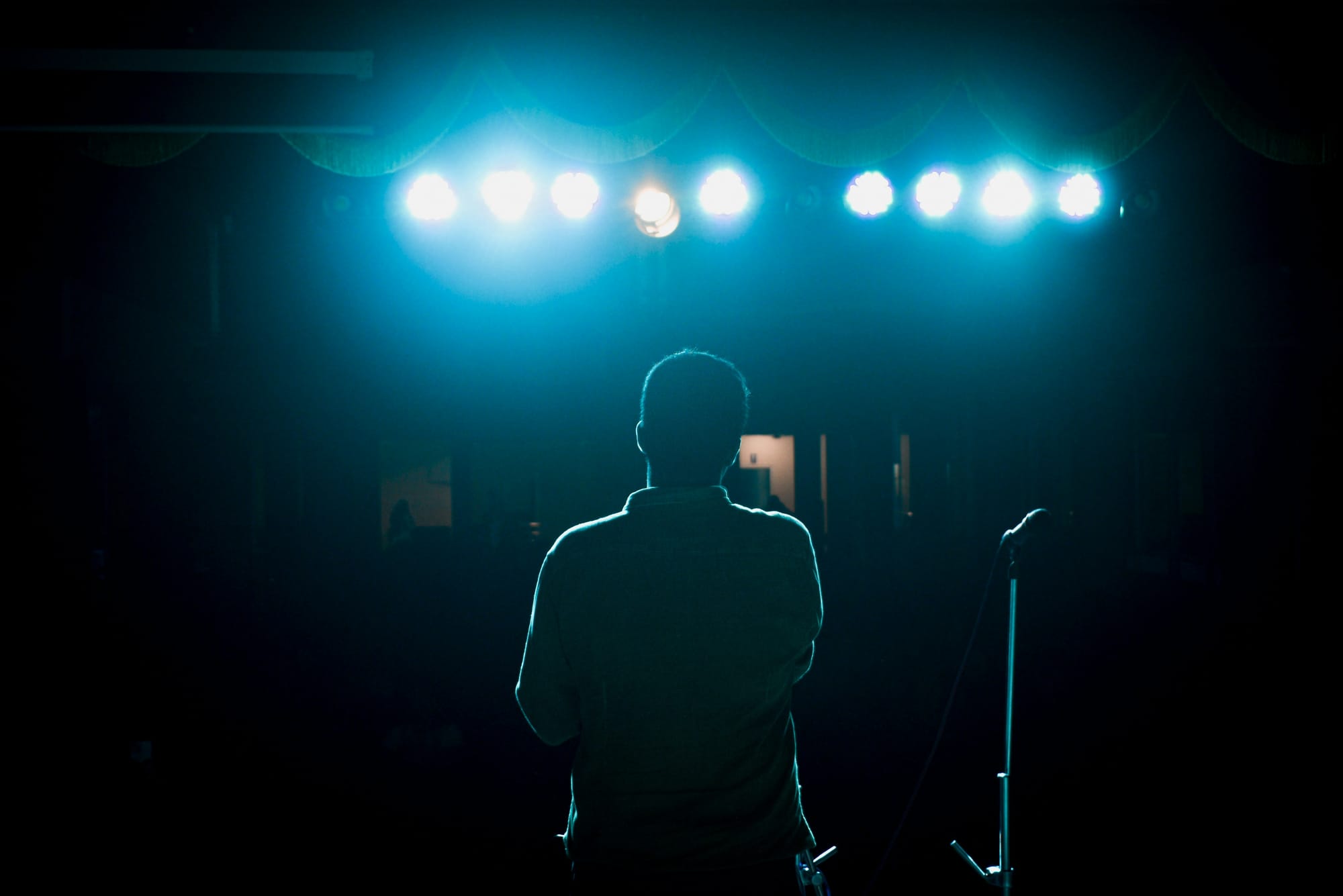
Conclusion: Your Turn to Step Up
Fear doesn’t have to be the boss anymore. Start with Day 1 tomorrow and keep climbing your ladder until the stage feels like home.
Your body doesn’t know the difference between a full theatre and your neighbour’s cat — it just thinks something’s watching you. So start small, start now, and grow into the spotlight.
What’s the smallest performance you can plan this week to start your journey?
Gentle Octaves is a Guitar and Music coaching space for adults over 40 returning to creativity or just starting out. With a background in Psychology, Osteopathy, and Corrective Exercise, we help people overcome pain, anxiety, and self-doubt through music. Learn more or book a session here.
Check out my book below for a 5 day plan to over come your singing anxiety once and for all all:
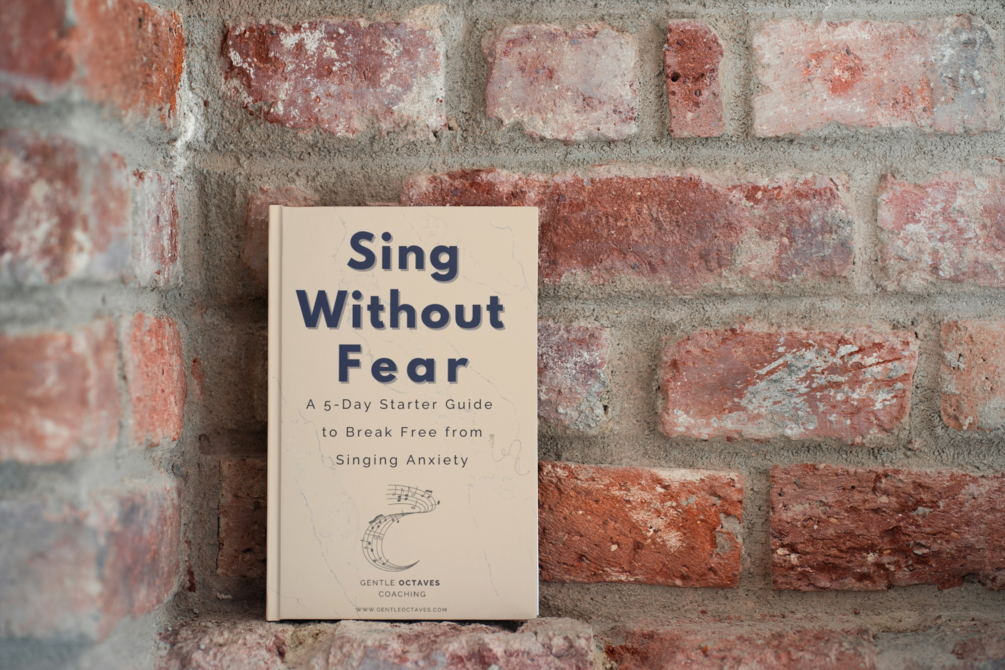
For the Curious:
- Craske, M. G., et al. (2014). Maximizing exposure therapy: An inhibitory learning approach. Behaviour Research and Therapy, 58, 10–23.
- Guillot, A., & Collet, C. (2008). Construction of the motor imagery integrative model in sport: A review. British Journal of Sports Medicine, 42(9), 716–721.
- Ma, X., Yue, Z. Q., Gong, Z. Q., et al. (2017). The effect of diaphragmatic breathing on attention, negative affect, and stress in healthy adults. Frontiers in Psychology, 8, 874.
- Markus, H., & Wurf, E. (1987). The dynamic self-concept: A social psychological perspective. Annual Review of Psychology, 38, 299–337.
- Steptoe, A. (2001). Negative emotions in music making: The problem of performance anxiety. Journal of Anxiety Disorders, 15(6), 491–505.
